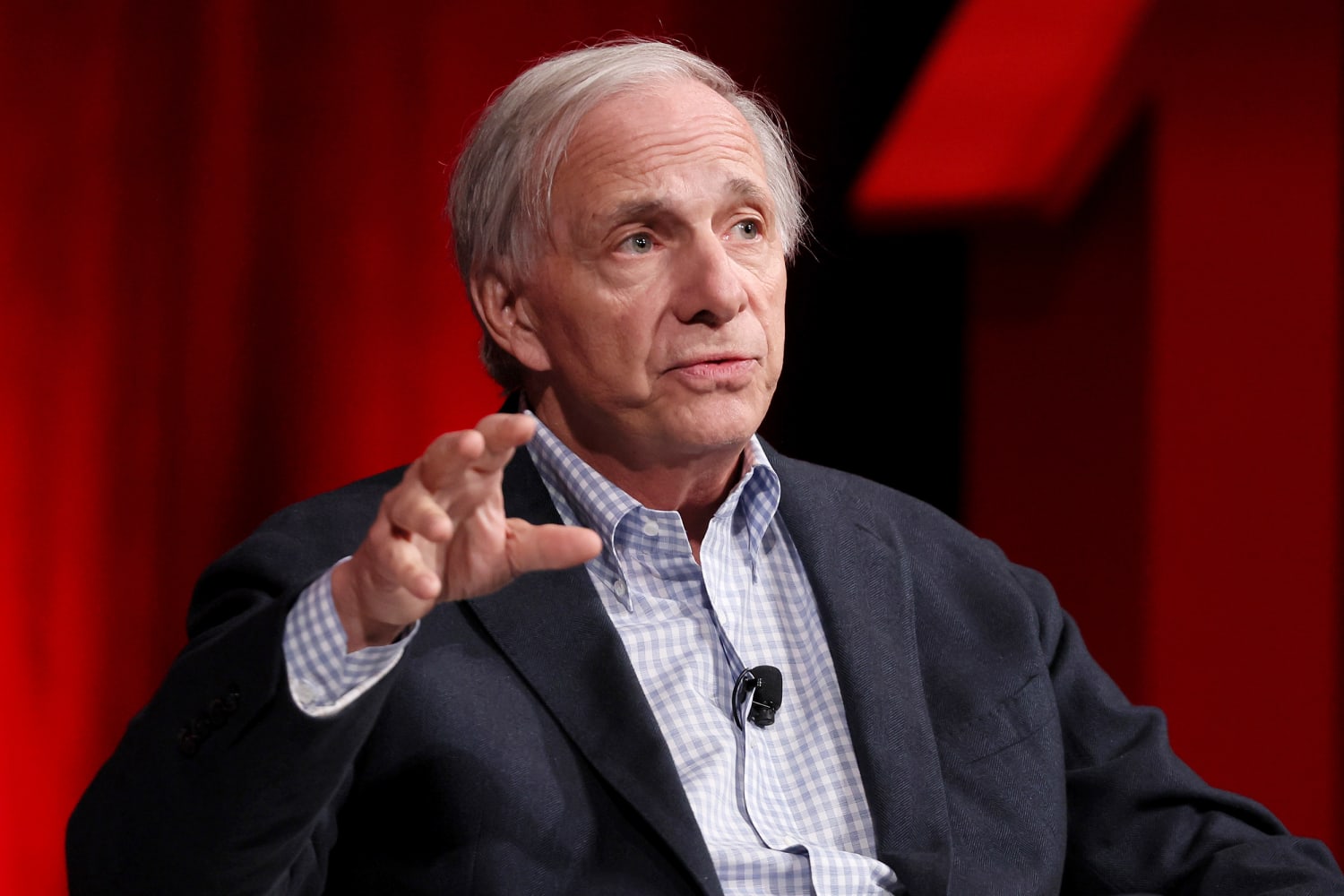Ray Dalio, one of the most iconic names in modern investing, has once again made headlines — this time for his absence. As Danantara, a joint venture fund involving Indonesia's Sinar Mas and Singapore's Temasek, moves forward without his involvement, questions arise about the direction of this ambitious investment firm and the enduring influence of Dalio’s legacy. This article explores Ray Dalio’s profile, his principles, and the implications of Danantara’s decision to go forward without its most high-profile founding figure.
Who Is Ray Dalio?
Ray Dalio is an American billionaire investor and hedge fund manager, best known as the founder of Bridgewater Associates, one of the world’s largest and most successful hedge funds. Born in 1949 in Jackson Heights, Queens, New York, Dalio started investing at age 12, buying shares of Northeast Airlines. His early interest in finance eventually led him to establish Bridgewater in 1975 from his two-bedroom apartment.
Bridgewater grew into a titan of finance, managing more than $150 billion in assets at its peak. Known for pioneering risk parity, a portfolio strategy that balances risk rather than capital, Dalio became synonymous with quantitative investing and macroeconomic analysis. The Ray Dalio profile is often associated with deep research, disciplined systems thinking, and a unique management culture known as radical transparency.
His 2017 book Principles: Life & Work has sold millions of copies and is widely referenced by business leaders and investors. In it, Dalio outlines the decision-making frameworks that guided Bridgewater to success — emphasizing truth-seeking, thoughtful disagreement, and continuous improvement.
The Rise of Danantara and Dalio’s Absence
In May 2024, Sinar Mas and Temasek jointly launched Danantara, an investment platform aimed at navigating the "next phase" of Southeast Asia’s growth story. The firm’s vision was ambitious: to allocate patient capital into long-term, future-forward investments such as digital transformation, sustainability, and regional infrastructure.
Early reports hinted at Ray Dalio’s involvement. His global influence and investing wisdom were expected to shape Danantara’s strategic direction, especially considering his strong relationships in Asia and his focus on long-term cycles. However, Danantara officially confirmed in June 2025 that Ray Dalio is not part of the venture — not as a board member, advisor, or investor.
This absence raises questions: Did the firm pivot in its vision? Was Dalio’s involvement misunderstood from the start? Or did strategic interests diverge?
Regardless, Danantara continues with a team composed of seasoned professionals, including Indra Widjaja of Sinar Mas and Steve Howard from Temasek, committed to investing in the region’s transformation.
Ray Dalio's Investing Philosophy and Its Influence
Even if Ray Dalio is not directly involved, his influence looms large. The Ray Dalio profile is essentially a case study in macroeconomic forecasting, cycle analysis, and risk management. His famous "economic machine" framework helps explain the interplay between credit, productivity, and economic growth.
Here are some of Dalio’s key principles that continue to inspire investors globally:
1. Understanding Long-Term Debt Cycles
Dalio's research on debt cycles, particularly his analysis of how economies repeat predictable patterns over decades, has helped shape sovereign investing strategies around the world.
2. Diversification and Risk Parity
Rather than relying on asset allocation based on capital size, Dalio’s risk parity model distributes investments based on their volatility and correlation, ensuring resilience in various market conditions.
3. Principled Decision-Making
Dalio believes in systematizing decision-making processes based on principles. Whether in leadership or investing, clarity around values leads to more consistent outcomes.
Danantara’s goals — long-term focus, future-forward investment, and regional development — echo Dalio’s worldview, even if he isn't directly pulling the strings.
What’s Next for Danantara?
While the firm won’t be tapping into Ray Dalio’s personal expertise, Danantara appears well-equipped to carry out its mission. It aims to be more than a fund — acting instead as a “strategic platform” for innovation and collaboration across Southeast Asia.
From green energy projects to digital inclusion initiatives, Danantara targets sectors that require patient, mission-aligned capital — a style of investing often referred to as “conscious capitalism” or “values-driven investing.”
By anchoring itself in Singapore with strong Indonesian representation, Danantara can serve as a bridge between ASEAN and global capital flows. Its independence from high-profile figures like Dalio may also signal a desire to build an authentic identity grounded in regional expertise.
Ray Dalio’s Enduring Global Impact
Though Dalio is stepping back from the spotlight, his global impact endures. In recent years, he’s focused more on philanthropy, education, and geopolitical commentary. Through his Dalio Foundation, he supports ocean exploration, public education reform, and sustainability.
Moreover, his writings on the "changing world order", including warnings about U.S.-China tensions, de-dollarization, and internal instability, continue to guide policymakers and investors worldwide. These insights are increasingly relevant in a multipolar world where Southeast Asia plays a pivotal role.
Whether through books, interviews, or the institutions he’s built, Ray Dalio’s legacy remains deeply embedded in how modern investing is understood and practiced. His absence from Danantara may surprise some, but it also affirms that his teachings have transcended the need for his direct involvement.
Conclusion: A Profile Bigger Than One Fund
The Ray Dalio profile is not confined to one hedge fund, book, or project. It is a blueprint for disciplined, principle-based investing that continues to influence leaders around the world. As Danantara moves forward without him, the fund’s direction may still reflect the very principles Dalio has championed for decades — a testament to the power of enduring ideas.
In the end, while Ray Dalio might not be at the Danantara table, his presence will likely be felt in every long-term investment decision shaped by risk awareness, macro insight, and principled thinking.
Read More






 Friday, 06-02-26
Friday, 06-02-26







